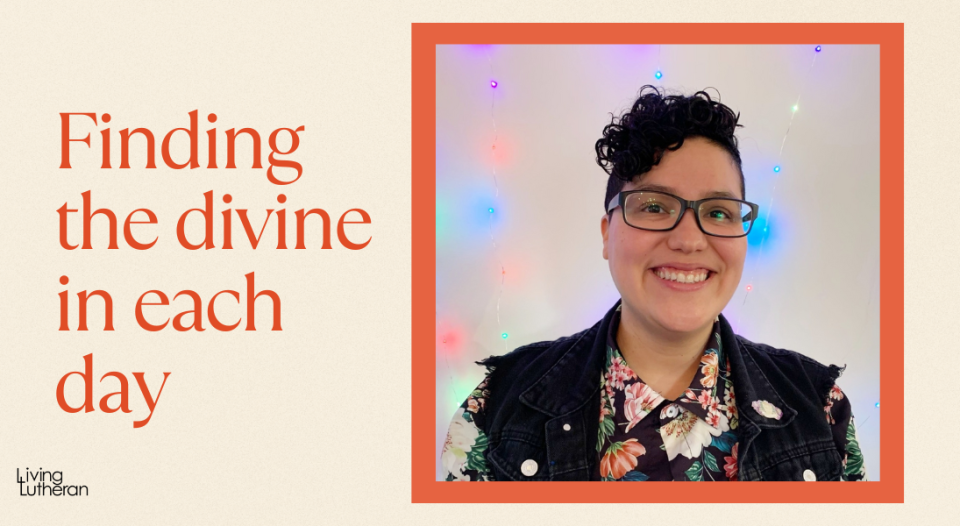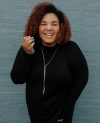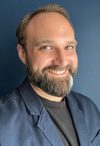Ále Suárez is a singer-songwriter, an expressive arts therapist and a recent Master of Divinity graduate of Luther Seminary, St. Paul, Minn. Suárez dreams of creating a safe space for the LGBTQI2SA+ community to commune with the divine.
Suárez spoke with—and performed songs for—Living Lutheran about their path to ministry, living out their call, spiritual practices and how the church can better serve marginalized communities.
Growing up with a dad as a pastor, Suárez never expected to become ordained themself. “I wanted to focus on my music as a young person, so I delved into that and went to music school,” they said. “But then I was like, ‘Nope, I want to serve others in a different way.’” Suárez found themself drawn to expressive arts therapy. “I felt like that was very holy, like we were using the arts to engage people and helping them transform their lives. And for me, the blatant thing [in that process] was God and the Holy Spirit. But in that setting it was clinical and secular, so you can’t really name God. So that was something I just sat with.”
As Suárez discerned their vocational path, they felt called to become a pastor. “But there were definitely roadblocks,” they said. As a queer Venezeulan American, Suárez initially resisted the idea of joining a tradition with a history of marginalizing the communities they identify with. But a pair of dreams they had further clarified their call.
“I had a dream where my grandmother came to me and showed me all these people in my family history who were Christian and said, ‘You can connect with them too if you choose this path,’” Suárez said. “I believe God is more expansive than one religion. But at the same time, choosing a religion is a path to connection. For me it felt like a very grounded way to practice spirituality through Christianity and to connect with my roots. So that was settling for me.”
Shortly afterward Suárez was talking with a mentor about Suárez’s resistance to following their call. The mentor asked Suárez if they were struggling with Jesus or with the idea of an authoritative man telling them what to do. “That night I had a dream that a trans, nonbinary Jesus came to me, with [surgery] scars on their chest. It was so powerful. I really felt that the Jesus I needed came to me when I needed them. And I felt like I was able to be who I am within Christianity.”
Suárez believes that the church can do a better job of serving the communities they identify with by remembering a simple truth: “It’s about love,” they said. “It’s really important for us to continue to preach about love, to have conversations that could change people’s hearts and lead them toward love.”
This can also be accomplished by being inclusive when it comes to liturgical choices, Suárez said. “Using the women’s lectionary, using Scriptures that do highlight and focus on women that we don’t always see—if we can bring that to our lectionary and to our weekly readings, that would be important,” they said. “That goes for queer folks and marginalized genders as well. We’ve always existed; we just have to read between the lines.”
Suárez points to lectio divina, an ancient contemplative approach to reading Scripture, as an important spiritual practice for them. They also identified another, lesser-known practice that’s been especially meaningful for their spiritual life: coelo divina.
“It’s like lectio divina but you do this practice with the arts,” Suárez said. “You take a piece of Scripture, read it out loud and invite the Holy Spirit in and God to be with you as you’re reading it, and then you respond with art-making. You can write a poem, you can just write down words, you can draw an image, you can color, you can dance, you can move. It’s a way of responding to and engaging with the word.”
Read along with the lyrics while listening to Suárez’s song “Otro.”







